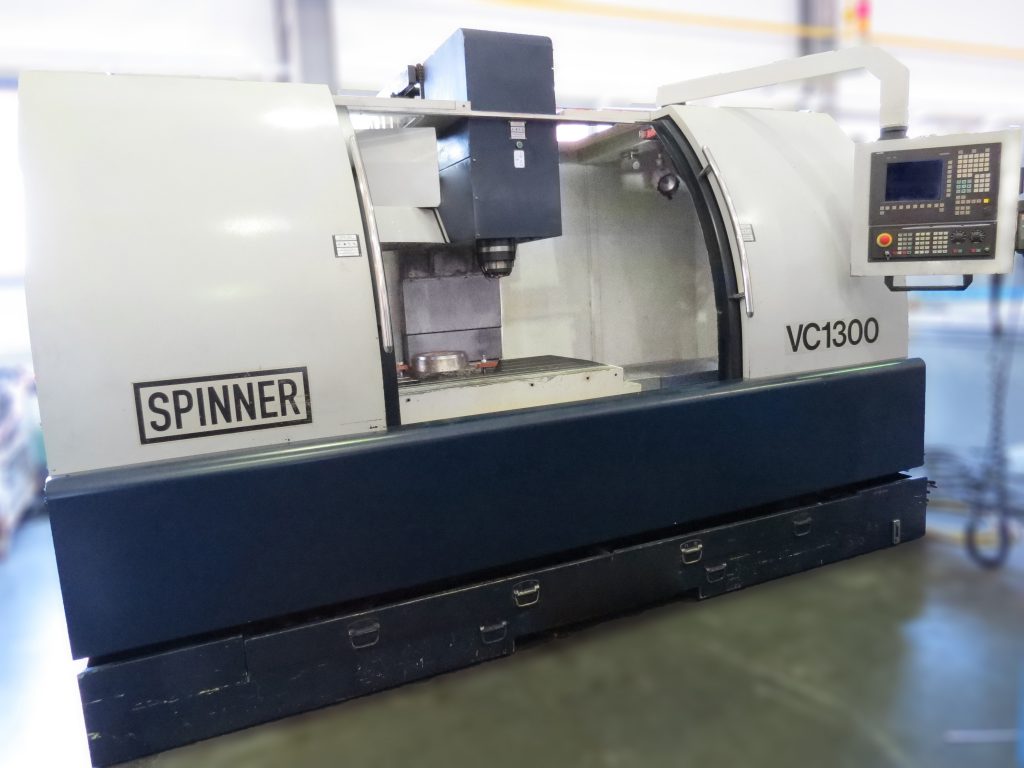
Buying a used machining centre can be an economic way of boosting your manufacturing output. However, inadequate research can lead to wasteful expenditure and machinery breakdowns. In this guide we set out frequent errors that compromise investments in pre-owned machines, and include selected listings from MachineSpotter.com to assist you in making the correct choice.
Photographs or descriptions provided by sellers are important. However, it is crucial to undertake in-person inspection or hire a qualified technician to assess the machine's condition. Look for signs of wear, corrosion or any irregularity in performance. Proper evaluation can prevent costly repairs in the future and ensure the used machine tool you are looking to buy is in good condition.
Ensure the used machining centre is compatible with your current installation, including software, tooling and power. Incompatibility may lead to unexpected costs in modifications or developing additional hardware, lowering the economic advantage of buying a used machine tool in the first place.
A well-documented maintenance history is a positive indication that the equipment has been properly maintained. Always request service records to verify regular maintenance and check for repeat mechanical or operational defects. This activity is critical in forecasting future maintenance needs and establishing the cost of ownership.
Buying from a reputable dealer can guarantee machine quality, accurate descriptions and technical support. Check the dealer’s history, read reviews and ask about referrals from others in the trade. A good dealer will have no problem in providing detailed specifications, permitting inspections and issuing guarantees on pre-owned machine tools.
Although a used machining centre may suit your immediate production needs, think about whether it can fulfill your long-term ambitions. Consider machine flexibility, the possibility for future upgrades and whether it can accommodate newer technology. This planning can be cost-saving and lower the necessity for future purchases.
Whenever possible, always put the machine through its paces. A live test will not only indicate how the machine operates, it will also corroborate manufacturer assertions and detect issues that cannot be seen by a stationary inspection. Listen for noises, response times and overall fluency of functions.
The price of used machining centres or second-hand machine tools is only half the story. Do not forget to add the costs associated with transportation, installation, maintenance, upgrades and potential downtime. Sometimes a slightly higher initial outlay could mean a lower overall cost.
If your employees are not familiar with the particular machine, ask for operator training and manuals with the sale. Some dealers may offer training as part of their after-sales service, enabling you to start working with the machine faster.
When purchasing second-hand machine tools, especially for use overseas, make sure they meet local safety regulations and laws. Non-compliance can result in hefty fines, machine downtime or accidents.
MachineSpotter.com boasts an excellent selection of reliable and top-performing used machining centres and other used machine tools. Some of the stand-out listings are shown below:
The easy-to-use MachineSpotter.com enables buyers to meet trustworthy sellers and find used machine tools that meet their technical requirements and budget.
Purchasing used machining centres or other pre-owned machine tools can be a source of substantial cost benefits and operational flexibility. However, the process entails serious planning and consideration. Avoiding the aforementioned pitfalls and buying through established marketplaces like MachineSpotter.com will facilitate smart purchases that propel manufacturing operations in the years to come.